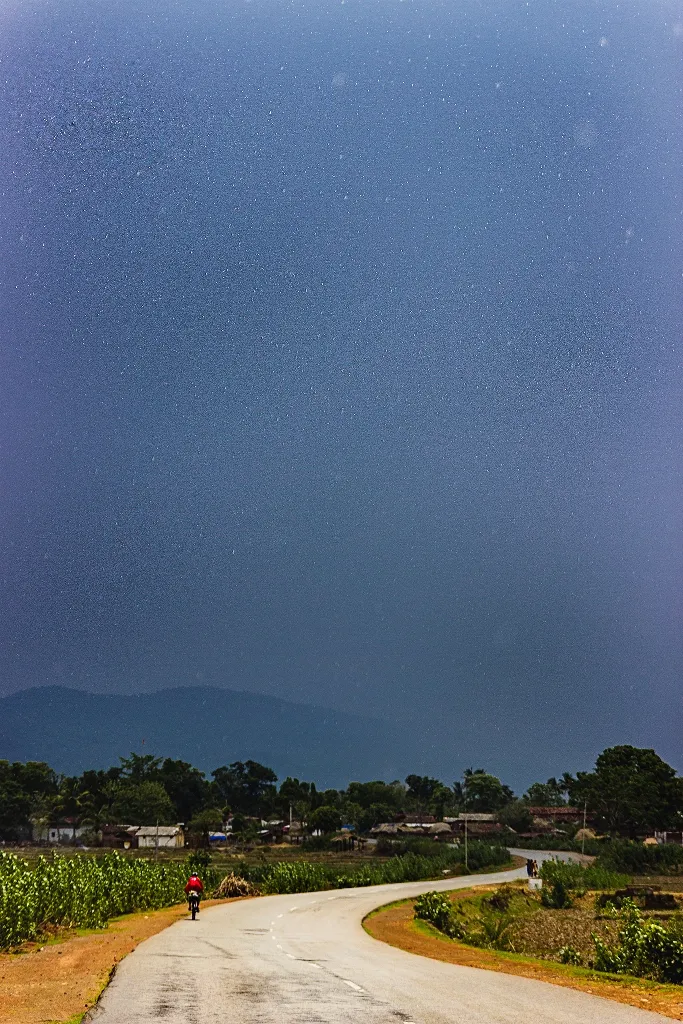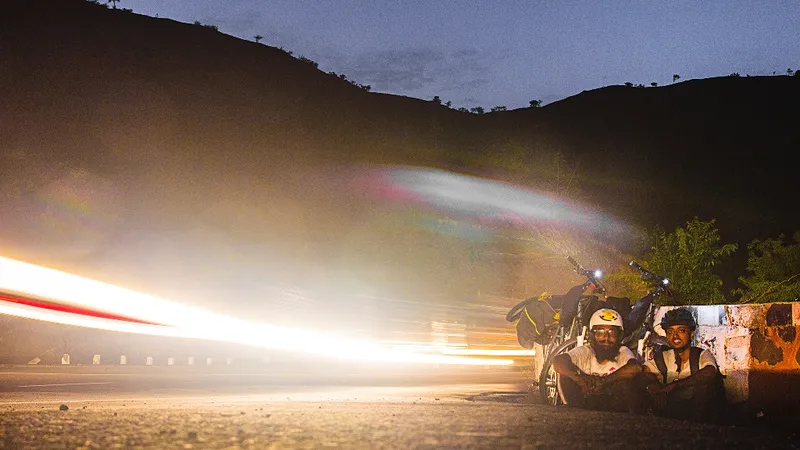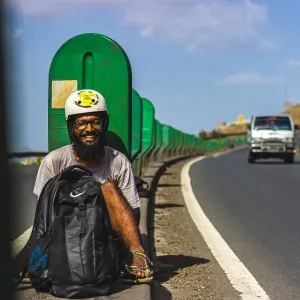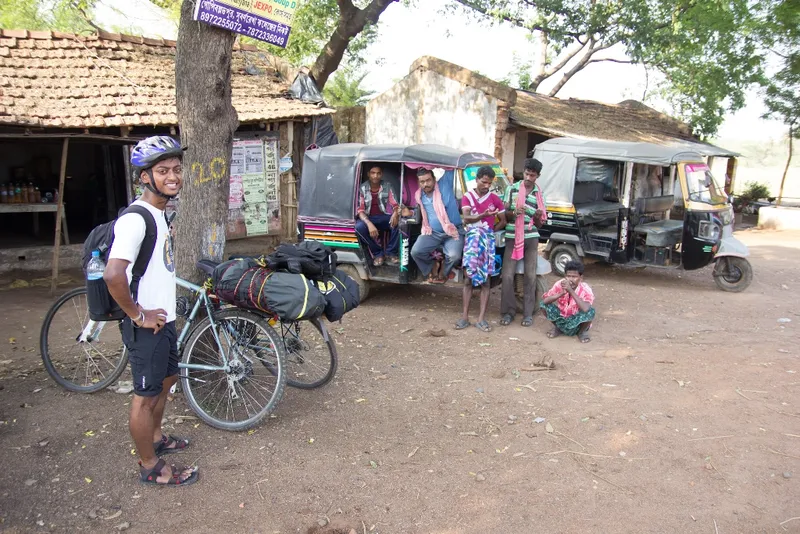2120km, 5 weeks, 2 bicycles and hope for hundreds: the Madness Project

What do you do when you become an engineer?
You travel 2120 km from your home on a bicycle to help people, and give yourself 5 weeks to do it.
It started as a small endeavour: to cover a few kilometres in a few days, and they overshot their own expectations.
The thing about human desires is that they’re heroin for the cerebrum. The more you experience, the more you want of it. Their next challenge was to cover 130 km from Kharagpur to Kolkata.
But, it wasn’t just enough to travel; it had to be something more meaningful.
And, so their journey started. Siddharth Agarwal and Ujjawal Chauhan: engineering graduates who took a detour from industry to embrace nature, the cause of man and cycling.
Their expedition transformed from covering distance to covering distance with the intent of raising funds for different social causes, especially by NGOs Rang De and Child Rights and You (CRY). This took them 2120 km from Kolkata to Mumbai.
The task is certainly not easy. The roads are unpredictable, if there is a road at all. The downhill move can be dangerous, and the uphill requires you to exert all the energy stored in your cells. Without a good bike, expect to strain a few muscles and annihilate your back, to say the least.
The first thing Siddharth says:
‘Just keep drinking water.
‘Keep hydrated, because you cannot let it come to a point where your body tells you, “Give me water.”’
Travelling on a bicycle is two flimsy wheels away from walking on foot. You’re never allowed the luxury of comfortably carrying more than everything you need, because your priorities are survival. There’s no option to rest at a homey lodge and hunt for agrestic restaurants and diners.
‘Basna to Raipur took us 13 hours. We started at 6 in the morning, and majority of the day was spent under 48 degrees Celsius. We ate in dhabhas along the highway. There’s no time for trying food out. Since, we’re on schedule, we can’t let new food take a toll on our stomach.’
Related read: Planning to backpack across India? The Indian Backpacker can help out
2120 kilometres is a long way to go, to which Siddharth laughs as he says, ‘We planned the trip on how much we need to cover. Took a rough distance of 80 km per day, and saw where we could stop next. If there was a place that was shy of 80, we would stop. If there was no place, then we’d travel another 80-90 km to find something.’

We assume these kind of strenuous expeditions that run on a schedule require some amount of athletic fitness, unless we want our legs to pulpify into cornmeal mush. But, Siddharth disagrees.
‘It’s not a challenge in that sense, I feel. When we started the trips we were not athletic, and we’re still not. We did not practice hard, either. Most of our preparation was mental.
‘Everybody has different objectives. If someone wants to travel, they do not have to be in the best shape, if you can train your mind well.
‘I’ll tell you a story about a rickshaw puller I met. He was from Kolkata travelling to Leh. Right now he’s in Uttar Pradesh, if I’m not wrong. If a rickshaw puller can do that, I think we can find the mental strength to do it, too.’

When you’re older, you don’t think back to the milestones that dot the journey of your life. Those moments are best enjoyed when they’re struck onto the road and marked. What you enjoy are the inconspicuous moments of apparent insignifance. With travel, you get to experience that tender nostalgia of little moments earlier.

‘One experience that stayed with us was when we reached Rajnath Gaon in Chattisgarh. It was 8.30 in the night, and we did not have a place to stay, so we were looking for a hotel or lodge close-by. Whilst cycling in the city on the highway we had to take a detour due to a roadblock. We bumped into a man, and it was a ‘you first’ situation. He stopped and asked us where we were going, so we explained it to him. Within a few seconds he said, “Beta, you’re coming to my house, I can’t let you stay at a lodge."
‘Once we were sure it was safe, we obliged and met two other friends of his, one of whom was involved with the press. Next thing we knew, we had a press conference in the morning. We stayed back for tea and met local party workers. It was so amazing, because we had discussions with them about the local problems, how some NGOs eat away money, and were surprised to see that the party workers were also dealing with similar issues as us. So, that’s something that stayed with us. In cities, you don’t find this kind of sincerity and warmth a lot.
‘We had plenty of these experiences with the local people. What really stands out is how much you connect with nature, too. When we were in Odisha, we were trying to go towards the Similipal National Park. It was early in the morning, but a little sunny. We had decided to sleep in the dhabha itself. By 8.30AM the weather was extremely windy to the point where I could not ride the bicycle straight. It had started to rain – torrential rains. You’d think it was scary, but it was one of those moments in my life that I truly felt what bliss actually meant. It was that moment when I closely interacted with nature.
Related read: How I Backpacked across North India and Kathmandu in under $70, and you can too
‘Sometimes the roads are so hot, you cannot stop peddling. As one foot reaches closer to the road it heats up, and you have to immediately pull it back up. So, you peddle really fast.’
Between roads that radiate punishing heat, a furiously weepy nature and endearing encounters, there are moments of insanity, too, that punctuate a long and tiring journey for social cause. Siddharth fondly remembers a particular incident that, in the moment, may have seemed hollow fun, but, in retrospect, has taken up enough meaning to become a treasured memory.
‘We were in Akola riding to Janna, having issues with our bicycle tyres. They were almost about to go. We knew something bad was going to happen – there we are riding through valleys and ended up on an isolated stretch of land. The last village was more than 5 km behind, and the next place 15 km ahead. We had tried 3 cities already, and they didn’t have the tyres we needed, so we were sure we wouldn’t get it in the next one.
We took our cycles, sat by the side of the road and just burst out laughing. All we did for half an hour was throwing stones around and laugh. We were stranded with nothing around, and we sat there with suddenly no worries at all. Because of moments like these, the trip changed us in terms of patience and acceptance.
‘The fact is that even though we helped so many people on this trip, the people we helped the most was ourselves. We’ve grown in ways we didn’t think, and at every level. That’s the best take-away.’

We finally get to the work Siddharth and Ujjawal set out to do: social change. There are great stories and stories of tragedy that are largely neglected by the mainstream, and there's passion to help alleviate the human condition.
Siddharth explains, ‘First, we deal with microfinance. We’re talking about lending at grassroots levels. The other two major issues were child labour and child education.
‘When we were doing field work for Rang De at one our stops, I met a lady who had a paan shop (betel shop). After taking a loan through Rang De she’d expanded to a grocery shop, and eventually added a snacks corner to it. It’s how small amounts of money can go on to create so much sustainability for a community.
There are a lot of unique things we experienced. At one of the dhabhas at the highway, we found an unusual signboard. The owner was at the counter, and behind him, on a green wall, the signboard said: “Yahan Baal Shramik Nahin Kaam Karte.” (Child Labourers Do Not Work Here)
‘It showed us that awareness wasn’t completely non-existent in these regions. But, it is still an unusual situation. In many places we saw children were put to work, children lied about their age, and they’ve been trained to accept this. We’re definitely not taking it as seriously as we should, because the problem is really huge. It makes us even more guilty when we see a child in Kolkata in red light districts begging. Even after so much work, there’s still so much to be done, and it feels sad that we can’t help everyone. I feel we ignore these children. We ignore them every day.
‘There’s also a big class difference between children. I remember seeing children in Nagpur being bullied because they went to public school, not private schools. At the same time, in Ahmednagar, on a field visit, we toured a government school that was using every resource it had to run the school effectively. Great community, good education and performance, and high enrollment rates for colleges.’
Siddharth hopes that more people take to expeditions that are beyond gypsy adventures. It’s far more difficult to take an entire entourage as the rate at which you move will be monumentally slower. But, a few good souls with the determination to change things can change things. After all, the success of the Madness Project is testament to it.
With the hope to accomplish far more than what 2120 km allowed them to do, people behind the Madness Project have one thing to say:
If there’s anything at all a person wishes to accomplish in life, the only thing stopping you is yourself. That’s the best thing that I learnt from this trip.
Here's a list of Trip Planning startups from India
Bon Voyage!







